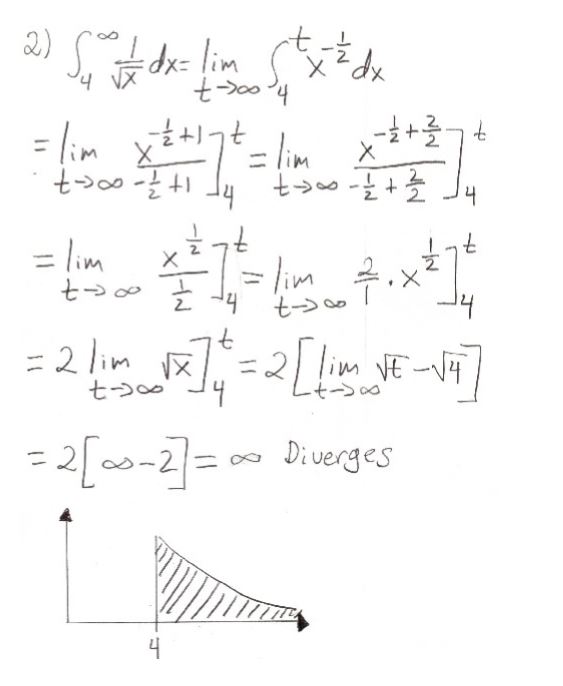
Solving the Improper Integral of \( \frac{1}{\sqrt{x}} \) from 4 to Infinity
In this mathematical exploration, we tackle the challenge of evaluating an improper integral, specifically \( \int_{4}^{\infty} \frac{1}{\sqrt{x}} \, dx \). Improper integrals are fascinating components of calculus that often appear in scientific computations and theoretical developments.
Converting to a Limit
The first step in solving this integral is to convert it into a limit-based expression. This is a standard procedure when dealing with integrals that have infinity as one of their limits:
\[ \lim_{{b \to \infty}} \int_{{4}}^{{b}} \frac{1}{\sqrt{x}} \, dx \]
Finding the Antiderivative
Next, we identify the antiderivative of \( \frac{1}{\sqrt{x}} \). This is a cornerstone concept in calculus and crucial for solving definite integrals:
\[ \int \frac{1}{\sqrt{x}} \, dx = 2 \sqrt{x} + C \]
Evaluating the Definite Integral
With the antiderivative in hand, we proceed to evaluate the definite integral from 4 to \( b \):
\[ 2 \sqrt{b} – 2 \sqrt{4} = 2 \sqrt{b} – 4 \]
Applying the Limit
Finally, the limit is applied to this expression:
\[ \lim_{{b \to \infty}} (2 \sqrt{b} – 4) \]
Conclusion
As \( b \) approaches infinity, \( 2 \sqrt{b} \) also heads towards infinity. This means that the improper integral diverges. This is an intriguing result and an excellent example of how calculus allows us to rigorously examine the properties of mathematical functions.
